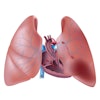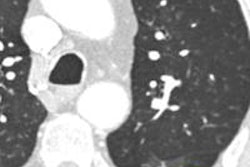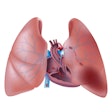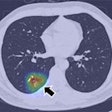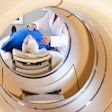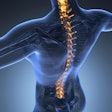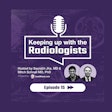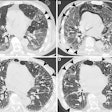Over the past year, South Korean industrial giant Samsung has made clear its ambitions to become a powerhouse in the healthcare market. The company recently took another step toward that goal by naming imaging industry veteran Doug Ryan to lead its Health and Medical Equipment division in North America.
Ryan comes to Samsung from Toshiba Medical Systems, where he spent nearly 20 years rising through the ranks, from the role of service engineer in the company's Australia division to vice president of marketing and strategic development in the U.S. He's perhaps best known for leading Toshiba's CT division during the launch of its Aquilion product line, which established the Japanese company as a force in the highly competitive CT segment.
Ryan sees Samsung as an opportunity to start with a clean slate, building a new healthcare business with the backing of one of the world's largest corporations -- and one that has aggressive expansion plans. The company's intentions for healthcare parallel its entry into other businesses, such as flat-panel televisions and smartphones, where it sees technology disrupting the established order in ways that enable new business opportunities, according to Ryan.
Healthcare is in the midst of such a disruptive phase, with a major shift toward diagnosis and treatment driven by quality metrics and business intelligence, he said. In the U.S., this is borne out by the new emphasis on quality and effectiveness metrics as the country moves beyond fee-for-service healthcare.
"Whenever there is a major disruption in an industry, we know we can go in and do it better," Ryan told AuntMinnie.com. "When TV went from picture tubes to flat-panel electronics, Samsung went all in; when phones went from standard phones to smartphones, they went all in. You will now see a transition into smart healthcare."
Samsung currently has four major product lines in healthcare, mostly developed through recent acquisitions: ultrasound (by acquiring Medison in 2010), in vitro diagnostics (Nexus Dx, 2011), mobile CT (NeuroLogica, 2013), and digital radiography (DR, developed internally). The company unified its healthcare product branding under the "Geo" nomenclature at the 2013 European Congress of Radiology.
Future expansion
Ryan sees Samsung's future expansion being driven by a combination of acquisitions and internal development. In addition to the company's demonstrated appetite for acquisitions, Samsung has a strong engineering tradition, with a research center in Korea that Ryan describes as "literally its own city."
In particular, don't expect Samsung to stand pat with the mobile CT technology it acquired in the NeuroLogica deal. In addition to Ryan's background in CT, Samsung in June 2013 named Toshihiro Rifu as head of R&D for CT and in vitro diagnostics; Rifu along with Ryan guided the development of the Aquilion program at Toshiba.
In ultrasound, Samsung plans to launch a scanner for the point-of-care market next month, and the firm has been doing very well in the women's health segment of ultrasound, Ryan said. The company's profile in DR will also grow in the U.S. when it begins product sales in the fourth quarter; its previous DR activities were restricted to international markets.
Ryan sees particular promise in the use of the company's products in novel ways, such as a NeuroLogica portable CT scanner that was mounted in an ambulance in Germany to enable patients to be scanned before they even reach the emergency room. That concept is being developed into a product for global markets due to the high level of interest, Ryan said.
A similar idea is being developed in the in vitro diagnostics segment, where Samsung participated in a trial in Scotland in which the firm's LabGeo IB10 portable blood analyzer was installed in an ambulance to perform troponin tests on patients with suspected heart attacks. Test results can be transmitted via smartphone to a hospital while en route to help caregivers develop treatment strategies before patients arrive in the emergency department.
Such projects are an example of what Ryan sees as the sort of data-informed use of healthcare that will drive Samsung's growth, particularly as it expands beyond the stable of products that it currently markets.
"Samsung won't be a niche player at any level," Ryan said. "The commitment and the desire to ramp up quickly is amazing. They will become a top-tier player very quickly."
